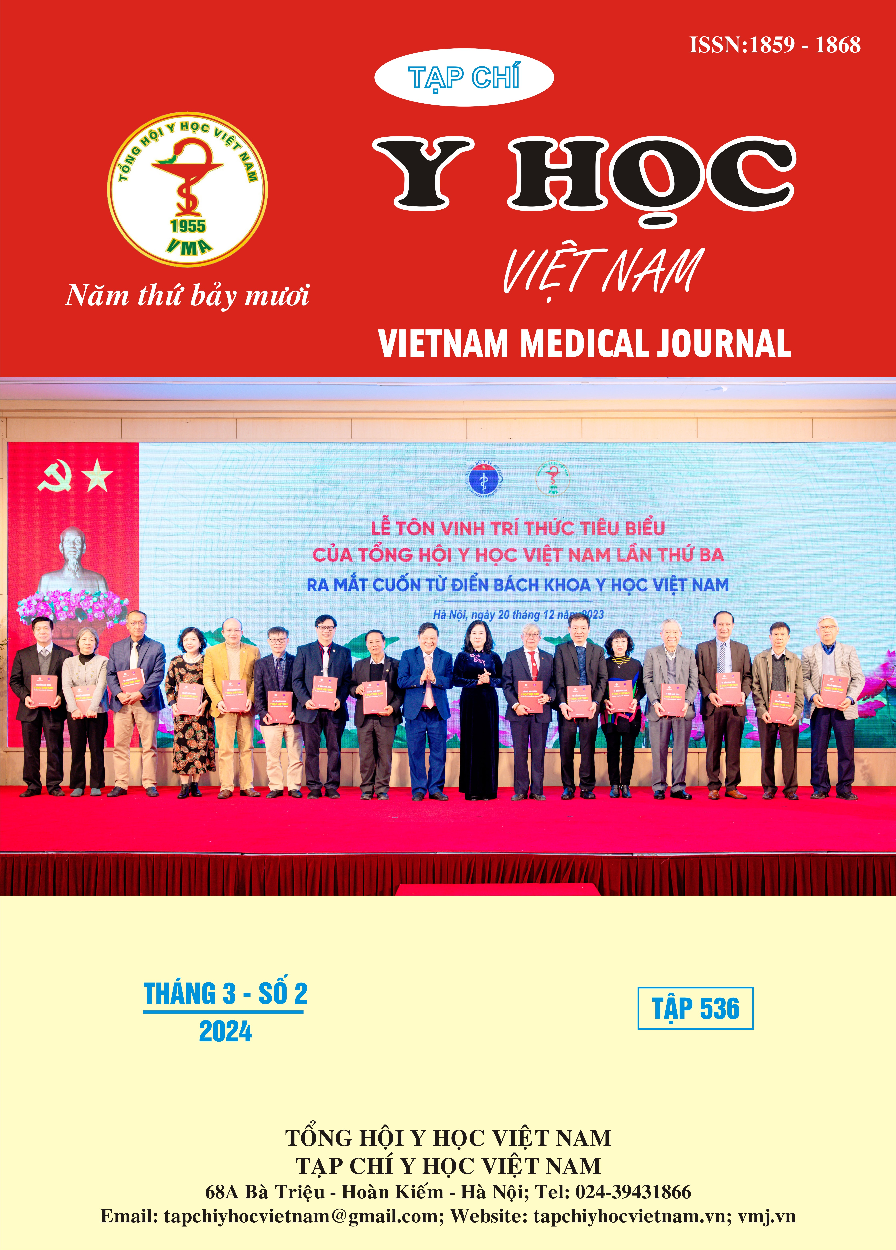ASSESSMENT OF THE RESULTS OF LENVATINIB AS FIRST-LINE TREATMENT FOR UNRESECTABLE HEPATOCELLULAR CARCINOMA
Main Article Content
Abstract
Aims: Assess the effectiveness and safety of Lenvatinib as a first-line treatment for unresectable hepatocellular carcinoma. Material and Methods: Thirty patients with unresectable hepatocellular carcinoma were treated with Lenvatinib and assessed for early results, treatment effectiveness, and safety issues. Key research indices included disease control rate, progression-free survival (PFS), and adverse effects. Results: the majority had hepatitis B-related liver inflammation, accounting for 73.3%, while hepatitis C was present in 6.7%. The liver function of Child-Pugh class A scored 5 and 6 points, corresponding to 83.3% and 16.7%. The incidence of portal vein thrombosis was 53.8%, with VP2, VP3, VP4 rates of 11.5%, 11.5%, and 30.8%, respectively. Most patients were in good condition (ECOG 0-1), and AFP levels before treatment were ≥ 400 ng/mL in 73.3% of cases. Disease control rate was 83.3% according to mRECIST criteria, and median progression-free survival (PFS) was 7.0± 0.8 months; factors influencing PFS included ALBI score, pre-treatment AFP, and major blood vessel invasion. Adverse effects were rare and manageable. Conclusion: Lenvatinib as a first-line treatment is a promising intervention for treating unresectable hepatocellular carcinoma, ensuring patient safety.
Article Details
References
2. Yamashita T., Kudo M., Ikeda K., et al. (2020). REFLECT-a phase 3 trial comparing efficacy and safety of lenvatinib to sorafenib for the treatment of unresectable hepatocellular carcinoma: an analysis of Japanese subset. J Gastroenterol, 55(1), 113–122.
3. Ikeda K., Kudo M., Kawazoe S., et al. (2017). Phase 2 study of lenvatinib in patients with advanced hepatocellular carcinoma. J Gastroenterol, 52(4), 512–519.
4. Hiraoka A., Kumada T., Atsukawa M., et al. (2019). Prognostic factor of lenvatinib for unresectable hepatocellular carcinoma in real‐world conditions—Multicenter analysis. Cancer Med, 8(8), 3719–3728.
5. Kudo M., Finn R.S., Qin S., et al. (2018). Lenvatinib versus sorafenib in first-line treatment of patients with unresectable hepatocellular carcinoma: a randomised phase 3 non-inferiority trial. Lancet, 391(10126), 1163–1173.
6. Tsuchiya K., Kurosaki M., Sakamoto A., et al. (2021). The Real-World Data in Japanese Patients with Unresectable Hepatocellular Carcinoma Treated with Lenvatinib from a Nationwide Multicenter Study. Cancers (Basel), 13(11), 2608.
7. Kodama K., Kawaoka T., Namba M., et al. (2019). Correlation between Early Tumor Marker Response and Imaging Response in Patients with Advanced Hepatocellular Carcinoma Treated with Lenvatinib. OCL, 97(2), 75–81.
8. Goh M.J., Oh J.H., Park Y., et al. (2021). Efficacy and Safety of Lenvatinib Therapy for Unresectable Hepatocellular Carcinoma in a Real-World Practice in Korea. LIC, 10(1), 52–62.


